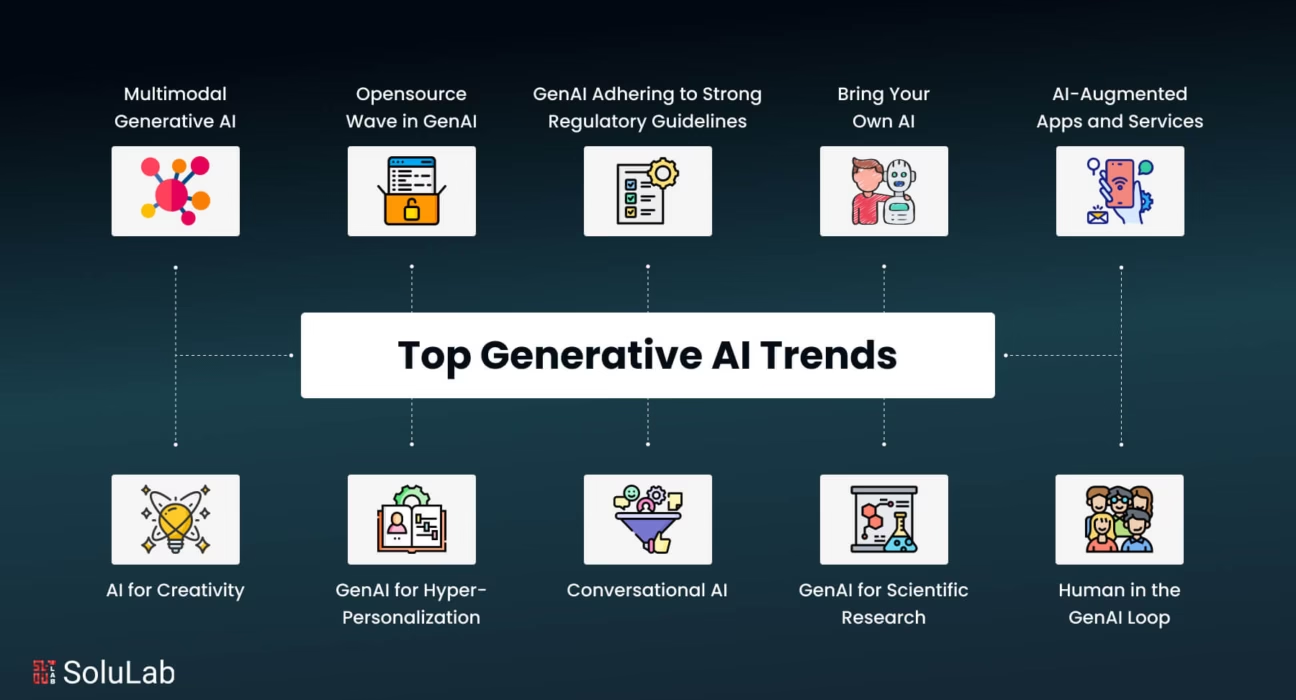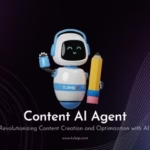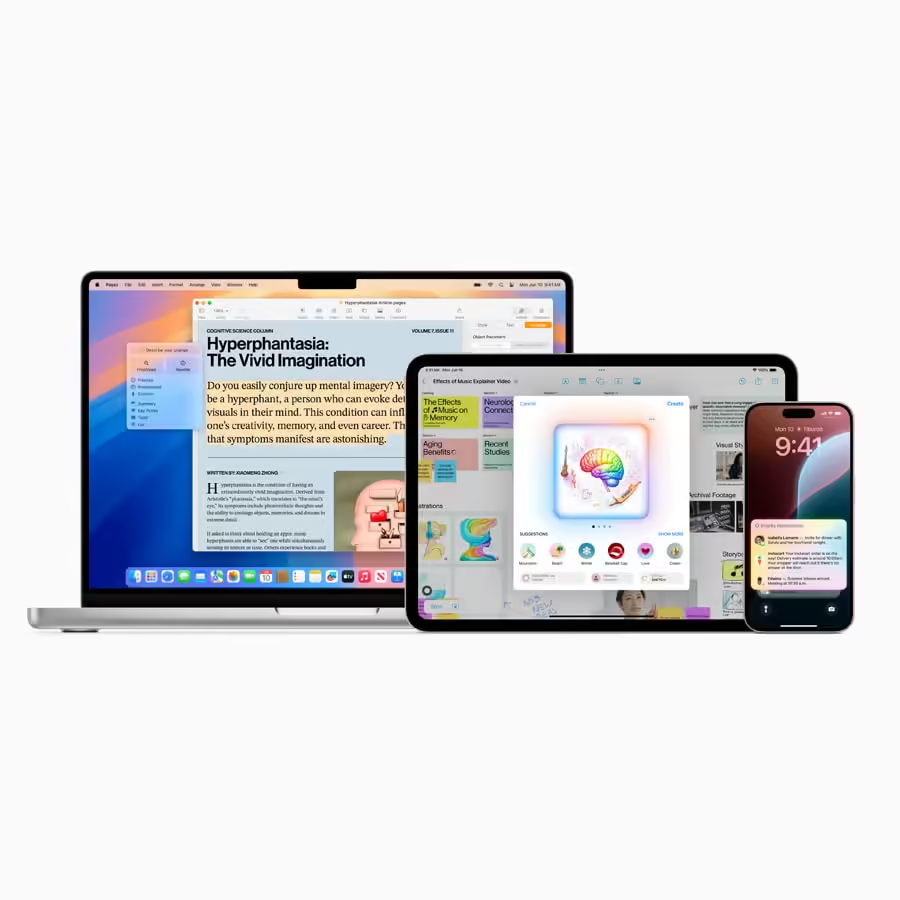“`html
Introduction: Setting the Stage for Generative AI’s Future
Generative AI is no longer a futuristic concept; it’s a present-day force, rapidly evolving and deeply embedding itself into the fabric of our digital lives. Its transformative power is undeniable, reshaping industries and redefining human-computer interaction. As we look towards the horizon, understanding the **future of generative AI trends 2025** becomes paramount. This post will explore what lies ahead, delving into the key trends, profound business implications, and the critical need to stay informed with the **latest generative AI news**.
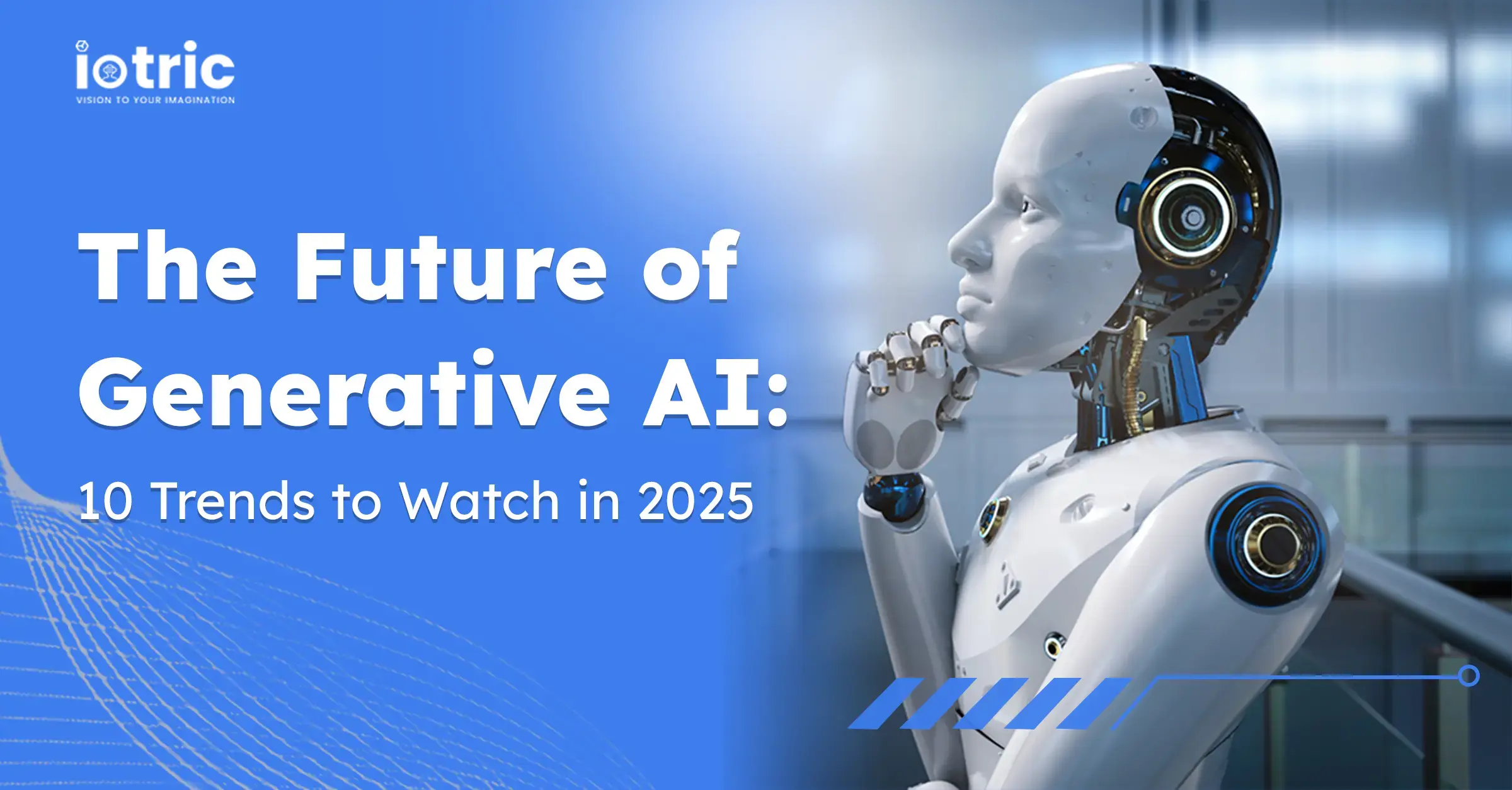
Understanding the Generative AI Revolution
Defining Generative AI
At its core, generative AI refers to sophisticated systems capable of autonomously creating novel content. This includes, but is not limited to, text (like chatbots and automated writing), images, music, and even complex design prototypes. These systems leverage advanced deep learning algorithms to learn patterns from vast datasets and then use that knowledge to produce original outputs.
*”Generative AI uses deep learning algorithms to create novel content, from text (like chatbots and automated writing) to images, music, and even complex design prototypes”* (source: Forrester).
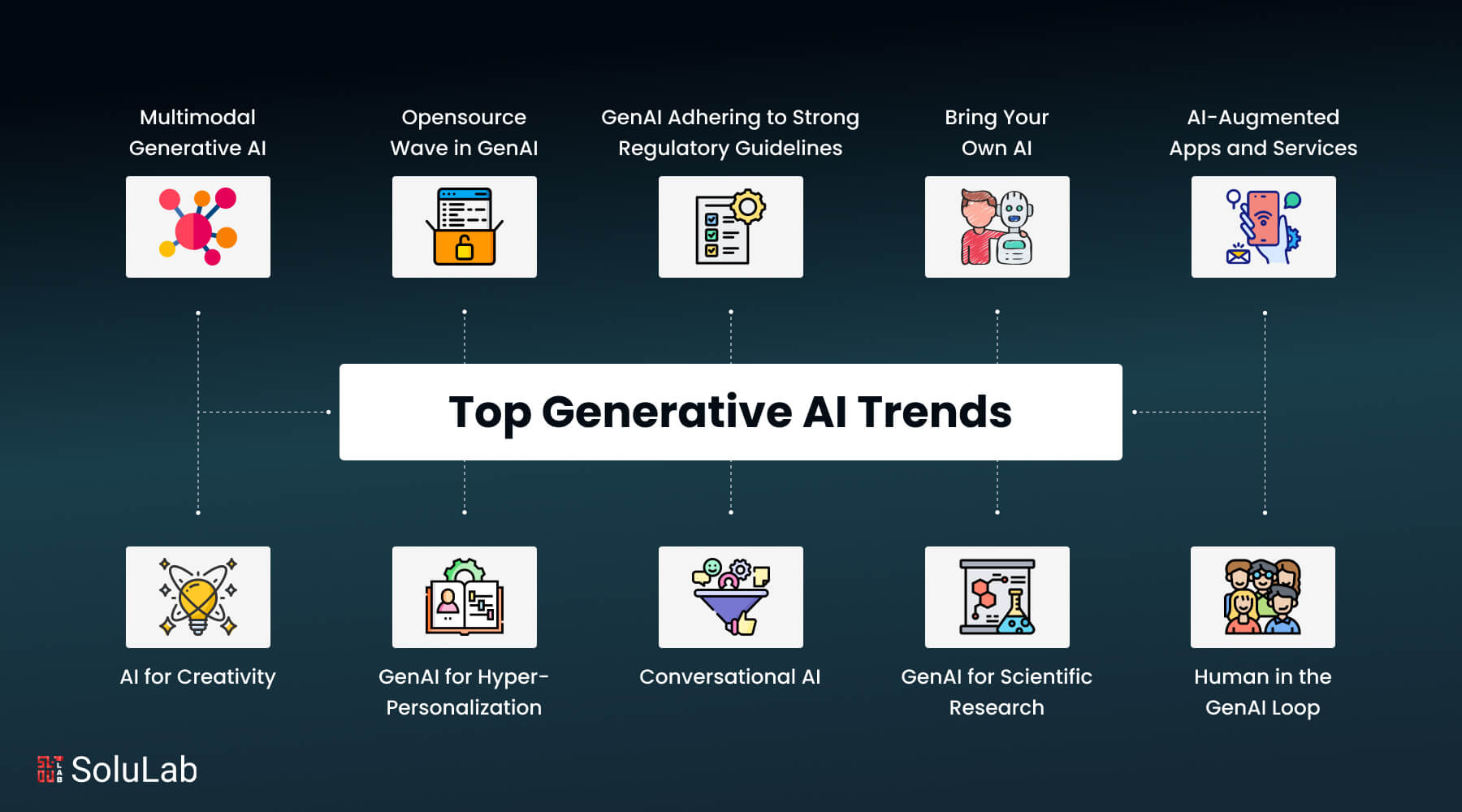
The Rocket Fuel: Recent Advancements
The current surge in generative AI’s capabilities is largely fueled by recent breakthroughs in large language models (LLMs) and multimodal AI. These advancements have dramatically increased the scale, accuracy, and accessibility of generative AI tools.
Data from the AI Index report reveals a significant 18.7% increase in private investment for generative AI in 2025, alongside nearly universal business interest. This rapid development has not only spurred investment but also slashed the barrier to entry, making these powerful tools accessible to both individuals and businesses alike (source: Stanford HAI; source: McKinsey).

Current Momentum: The Latest Generative AI News
The momentum behind generative AI is undeniable. As of 2025, nearly 80% of businesses are actively using generative AI in some capacity (source: McKinsey; source: Harvard Business Review). Its versatility is being harnessed across numerous applications, from revolutionizing marketing campaigns and enhancing customer interactions to streamlining product development processes.
The **latest generative AI news** consistently highlights its integration into everyday business operations, demonstrating its broad applicability and growing impact. This widespread adoption underscores the technology’s maturity and its essential role in modern business strategies. The advancements extend even into critical fields like healthcare, with revolutionary AI breakthroughs promising to transform medical practices (source: Penbrief).
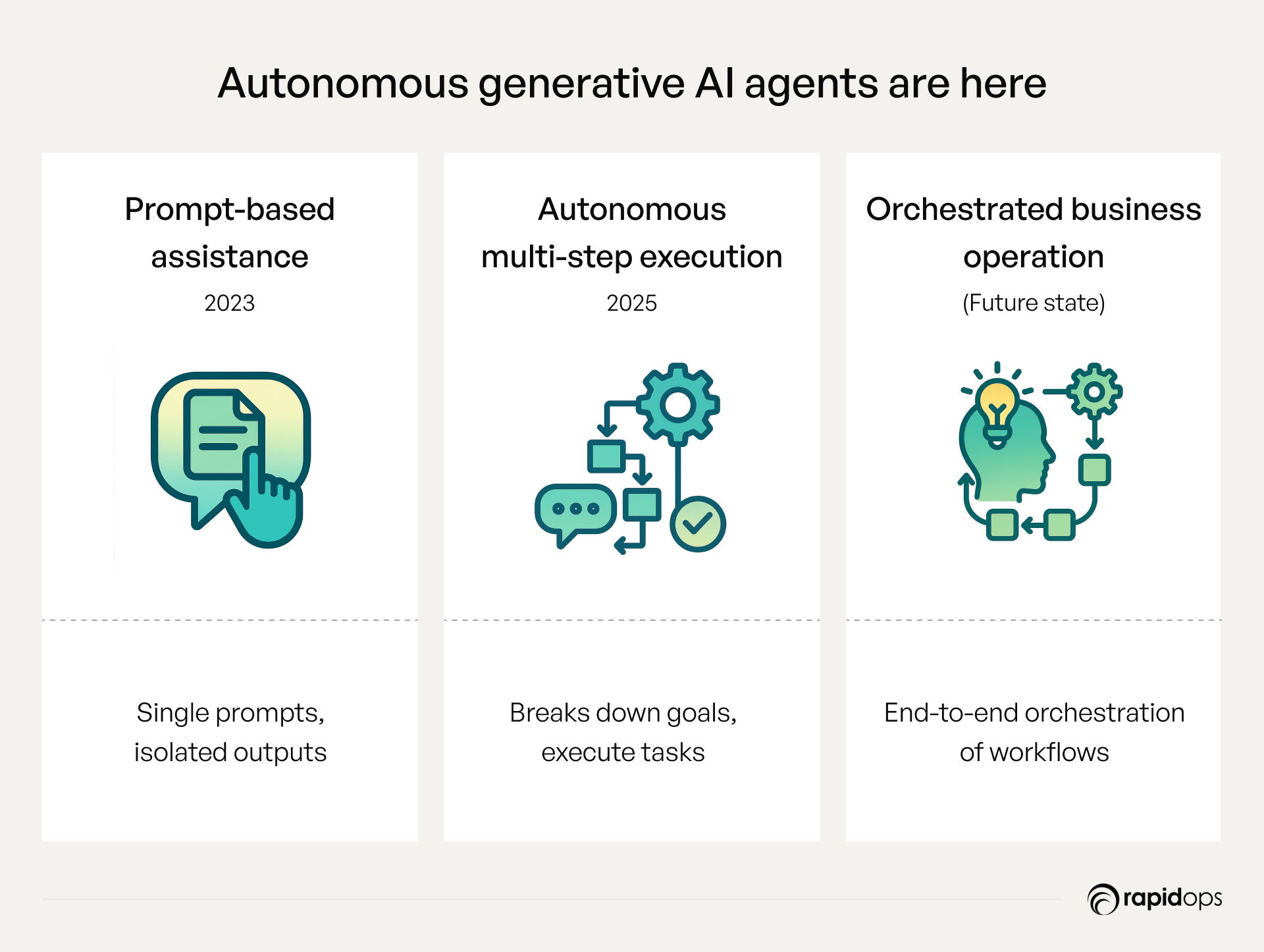
Key Future of Generative AI Trends for 2025
Trend 1: Hyper-Personalization at Scale
Generative AI is poised to unlock unprecedented levels of personalization. Businesses will leverage these capabilities to create highly individualized content, tailor product recommendations, and craft unique user experiences for each customer. By analyzing AI-driven customer insights, companies can foster deeper customer loyalty and establish powerful differentiation in crowded markets.
This trend represents a significant leap in customer engagement, moving beyond segmented approaches to truly one-to-one interactions at scale (source: Forrester; source: BCG).

Trend 2: Enhanced Creative Co-Pilots
The evolution of generative AI is moving it beyond simple automation to become a sophisticated creative partner. These AI tools will serve as co-pilots, assisting humans in ideation, iteration, and refinement across a wide spectrum of creative fields, including art, music, writing, and design. As these AI assistants become more sophisticated and interactive, they will transform the creative process, making it more efficient and potentially more innovative.
Expect these tools to become increasingly integral to creative workflows (source: Harvard Business Review; source: Forrester). Cutting-edge AI marketing tools are already showcasing this potential, enabling more dynamic and personalized content creation (source: Penbrief).
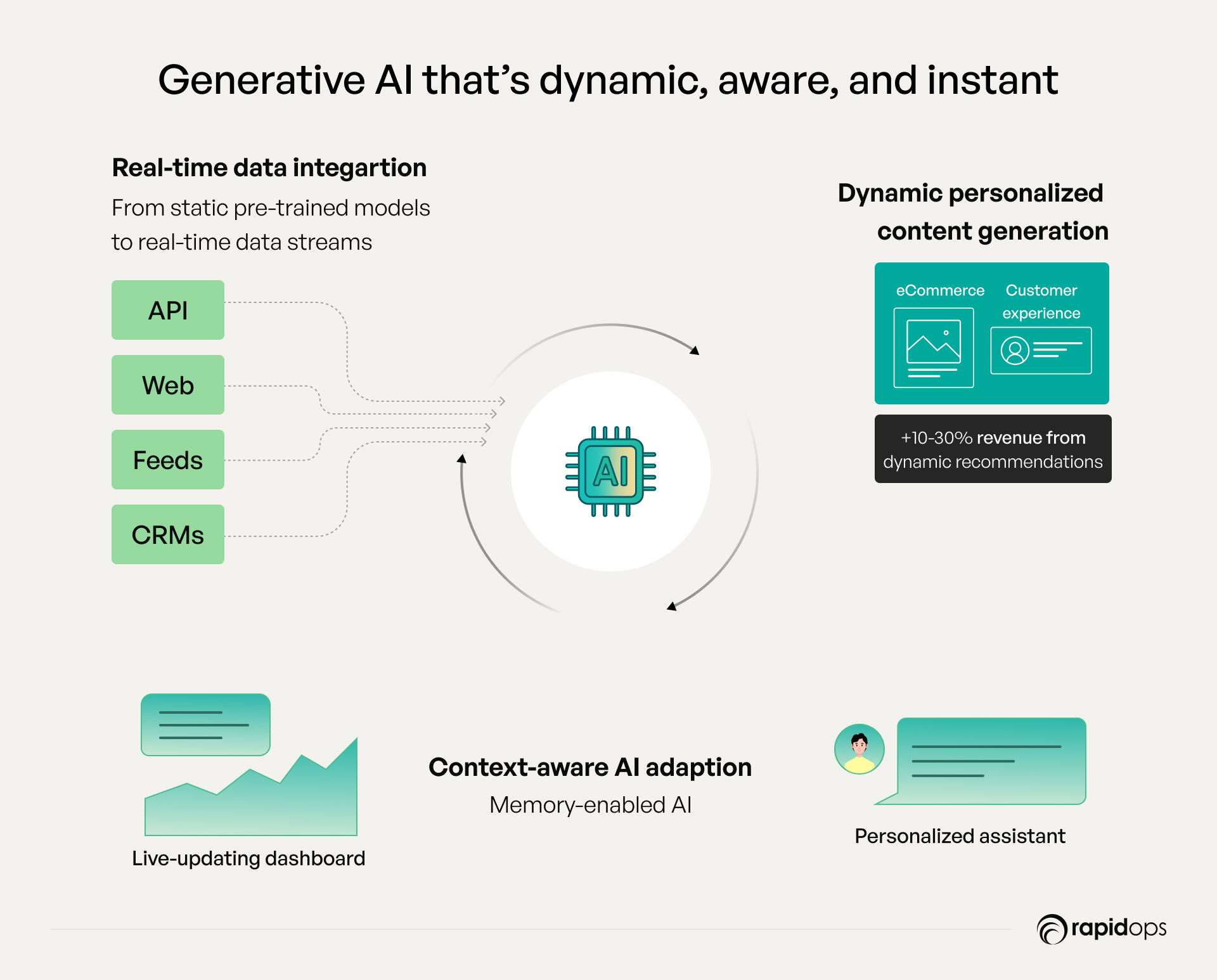
Trend 3: Democratization of Content Creation
Generative AI platforms are significantly lowering the barrier to entry for content creation. This democratization empowers individuals and small businesses to produce high-quality content that was previously the domain of specialized teams. The benefits are manifold: reduced costs, accelerated production timelines, and the amplification of diverse voices. This shift is leading to fundamental changes in business models and how content is produced and consumed.
This trend is a key aspect of **AI trends for businesses**, enabling more agile and accessible operations (source: Forrester; source: MLQ.ai). The guide on how AI is transforming businesses further elaborates on this fundamental shift (source: Penbrief).
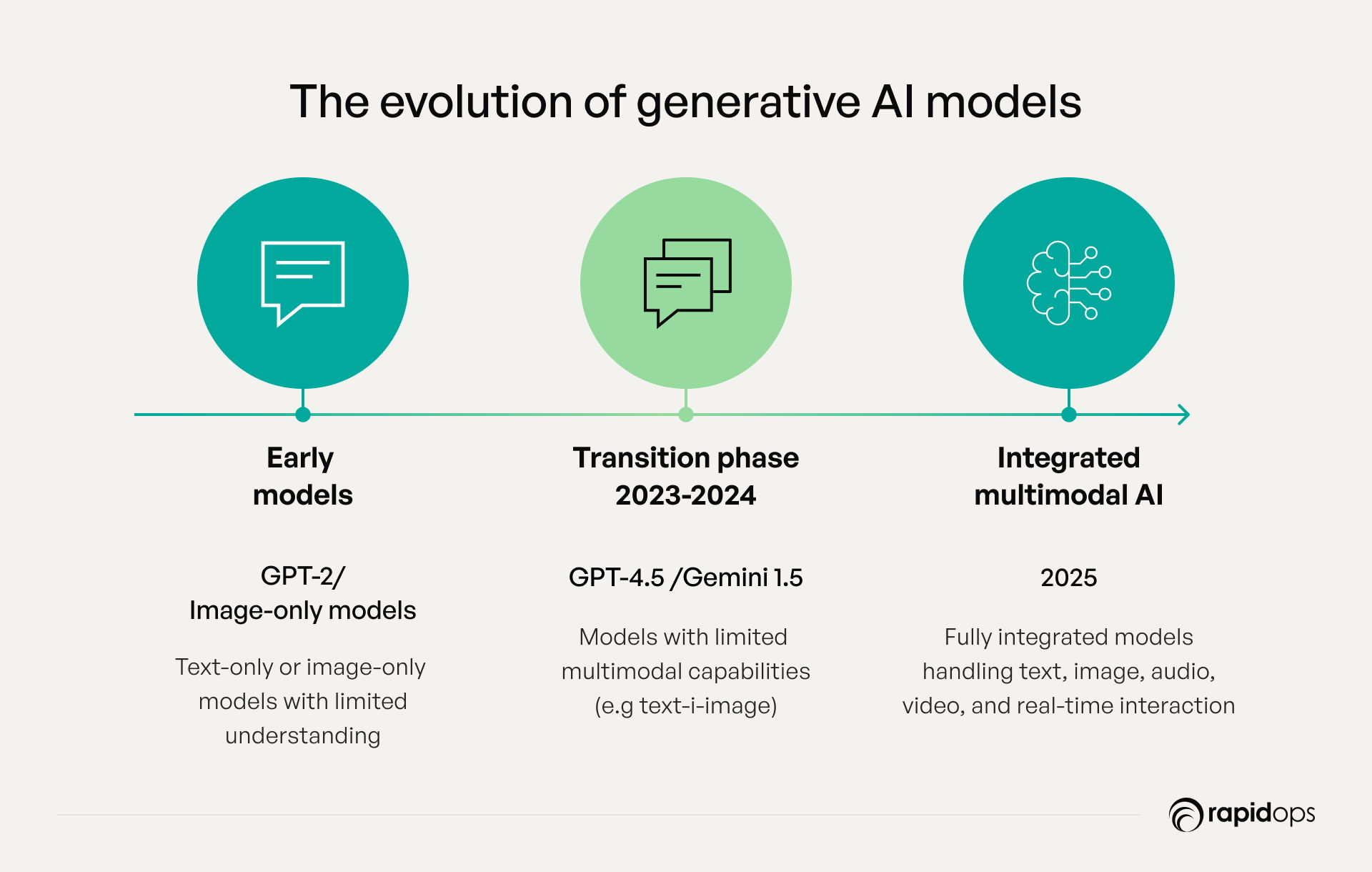
Trend 4: Advanced AI for Problem Solving and Simulation
Beyond content generation, generative AI is increasingly being applied to complex problem-solving. Its ability to model and simulate intricate systems makes it invaluable in fields such as engineering, drug discovery, and risk analysis. By driving scientific breakthroughs and enabling rapid, data-driven decision-making, generative AI is accelerating innovation across industries.
These are significant **advancements in generative AI**, pushing the boundaries of what’s possible (source: Forrester; source: Wharton). The impact on medical breakthroughs, for instance, is already being felt (source: Penbrief).
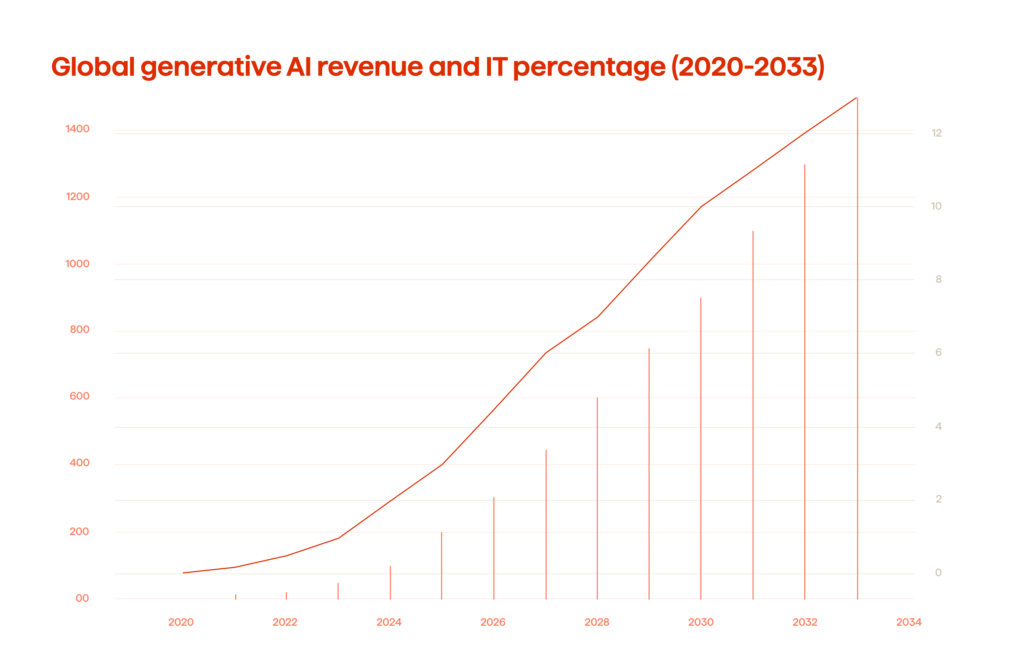
Trend 5: Ethical AI and Responsible Development
As generative AI becomes more powerful, the focus on ethical considerations intensifies. In 2025, expect a growing emphasis on bias mitigation, transparency in AI models, and responsible deployment practices. Regulations and industry-led initiatives are increasingly prioritizing these aspects, shaping the development and implementation of generative AI to ensure it benefits society equitably and safely.
This ethical dimension is a crucial component of the **generative AI impact 2025**, influencing trust and adoption (source: Stanford HAI; source: Forrester). Discussions around AI regulations and their implications are becoming more prevalent (source: Penbrief).

The Generative AI Impact in 2025 Across Industries
Impact on Businesses
Generative AI is set to drive significant core efficiencies across businesses, enhancing areas like customer service, research and development, and marketing automation. Moreover, it is paving the way for entirely new business models and revenue streams. Sectors such as retail, manufacturing, healthcare, and enterprise software are already experiencing and will continue to see transformative impacts from its integration.
This pervasive influence solidifies its position as a key driver of **AI trends for businesses** (source: BCG; source: Forrester; source: PwC). The ongoing transformation of businesses is a testament to AI’s power (source: Penbrief).
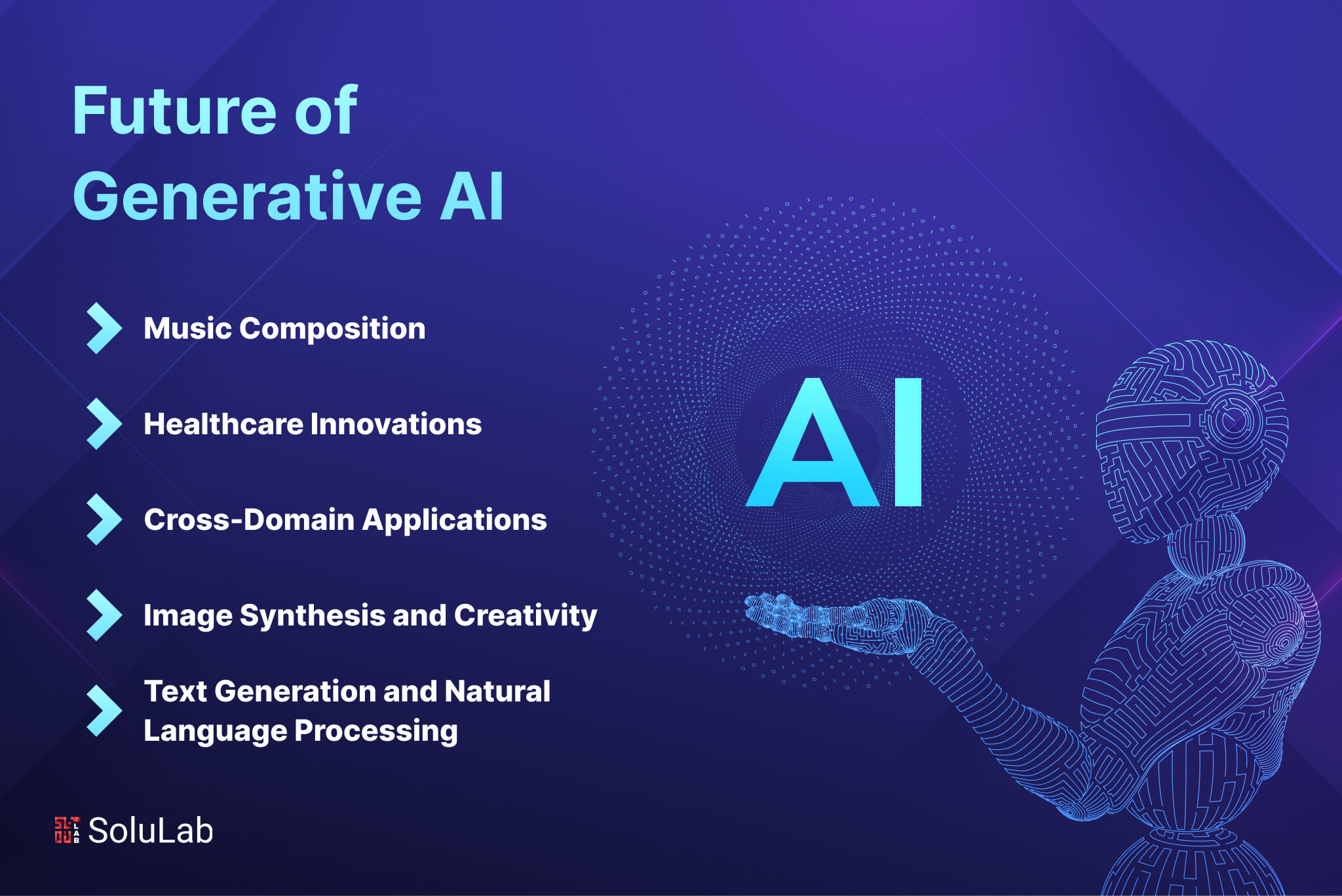
Impact on Workforces
The primary impact of generative AI on workforces in 2025 is expected to be one of augmentation rather than mass job displacement. New roles will emerge that blend human judgment with AI capabilities, creating collaborative workflows. This shift necessitates a growing emphasis on upskilling and reskilling as businesses adapt to these evolving demands.
Understanding this evolving workforce dynamic is a critical part of grasping the broader **generative AI impact 2025** (source: MLQ.ai; source: PwC; source: Harvard Business Review). The impact on jobs, particularly in regions like the UK, is a subject of ongoing discussion (source: Penbrief).

Impact on Society
On a broader societal level, generative AI presents a complex interplay of opportunities and challenges. The democratization of content creation and increased accessibility can lead to greater social equity. However, it also raises critical questions about trust, misinformation, digital literacy, and the evolving nature of skills required in a society increasingly intertwined with AI.
Addressing these societal implications is vital for ensuring AI’s positive development. The discourse on AI fairness, ethics, and accountability is becoming increasingly important (source: Penbrief).

Staying Ahead: Navigating the Latest Generative AI News
In the rapidly evolving landscape of generative AI, staying informed is not just advantageous; it’s essential for maintaining a competitive edge. Continuously monitoring the **latest generative AI news** allows individuals and businesses to adapt to new developments and leverage emerging opportunities.
To stay ahead, it’s crucial to follow leading research institutions like Stanford HAI, industry analysis from McKinsey and Forrester, and expert commentary on the **future of generative AI trends 2025**. Regularly consulting these sources provides invaluable insights into the trajectory of this transformative technology (source: Stanford HAI; source: McKinsey; source: Forrester). The latest AI technology news offers a constant stream of updates (source: Penbrief).
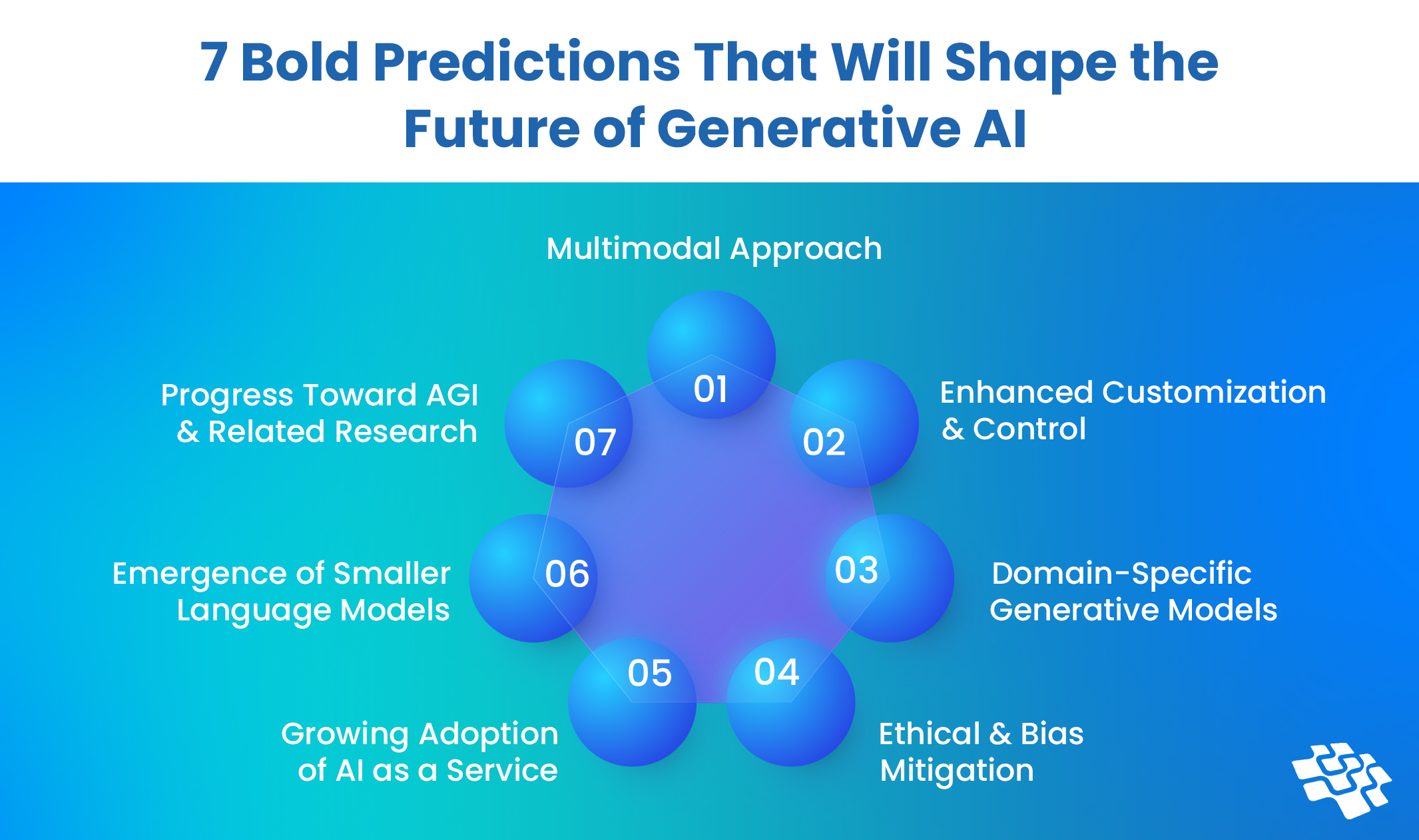
Frequently Asked Questions
What are the most significant future of generative AI trends for 2025?
The most significant trends include hyper-personalization at scale, the rise of enhanced creative co-pilots, the democratization of content creation, advanced AI for complex problem-solving and simulation, and a critical focus on ethical AI and responsible development (source: Penbrief).
How will generative AI impact businesses in 2025?
Generative AI will drive core efficiencies, create new business models, and enhance customer engagement across industries. Its transformative impact will be felt in areas like automation, R&D, and personalized marketing (source: Penbrief).
What is the expected impact of generative AI on workforces?
The primary impact is expected to be workforce augmentation and the creation of new roles blending human and AI capabilities. This will necessitate significant upskilling and reskilling initiatives.
Why is it important to stay updated with the latest generative AI news?
Staying updated with the **latest generative AI news** is crucial for adapting to rapid advancements, identifying new opportunities, and maintaining a competitive edge in an increasingly AI-driven world. It helps in understanding **AI trends for businesses** and strategic adaptation (source: Penbrief).
What are some key considerations for ethical generative AI development?
Key considerations include bias mitigation, ensuring transparency in AI models, implementing responsible deployment practices, and adhering to emerging regulations and industry standards.

“`


